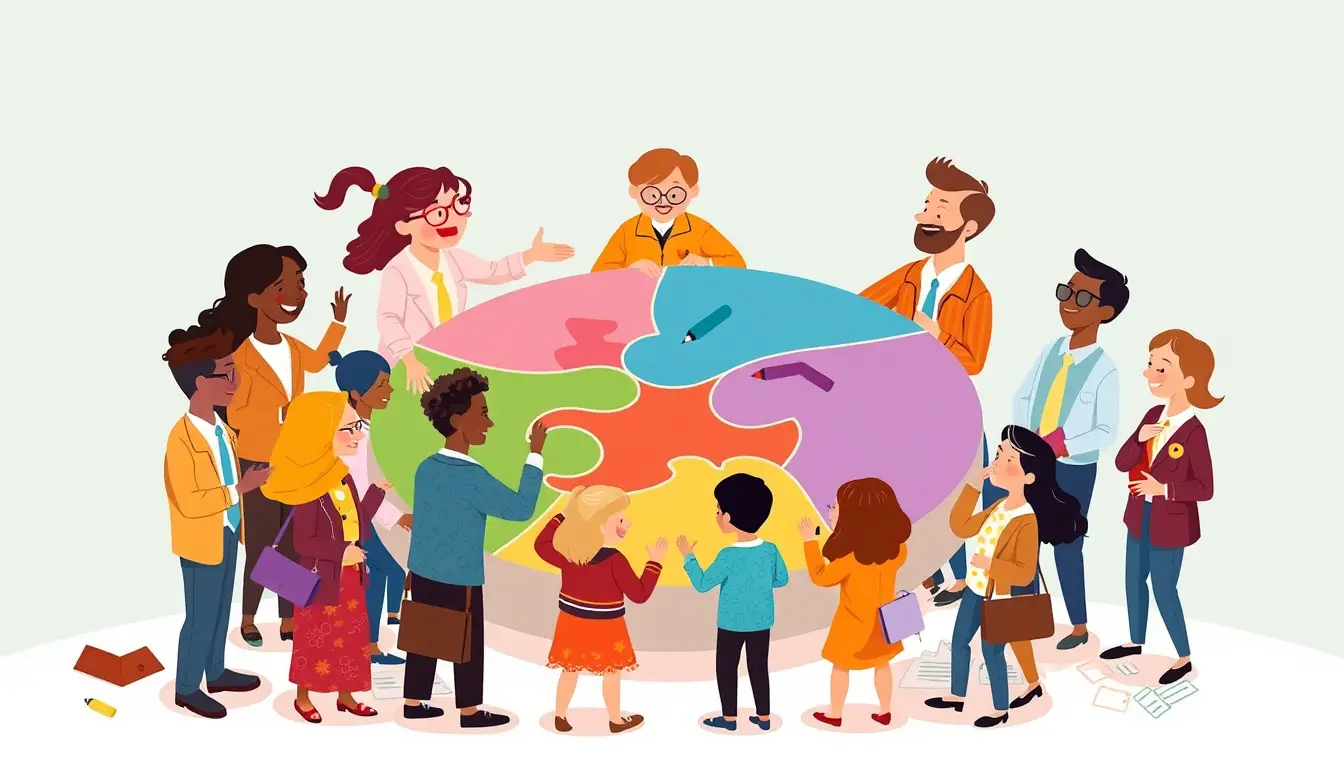Negotiation is an essential skill that can benefit individuals in various aspects of their lives, from personal relationships to professional careers. Effective negotiation can lead to better outcomes, stronger relationships, and increased satisfaction. In this article, we will explore negotiation examples in real life, highlighting successful strategies and techniques that can be applied in different scenarios.
Salary Negotiation
One of the most common negotiation examples in real life is salary negotiation. When starting a new job or seeking a raise, individuals need to negotiate their salary to ensure they receive fair compensation for their work. Here are some tips for successful salary negotiation:
-
Research the market: Knowing the average salary range for your position and industry can help you make a strong case for your desired salary.
-
Know your worth: Make a list of your skills, qualifications, and achievements to demonstrate your value to the employer.
-
Be confident but respectful: Negotiation is a conversation, not a confrontation. Be confident in your request, but also be open to compromise and feedback.
For example, let’s say you’re applying for a marketing position at a startup. You’ve researched the market and found that the average salary for this position is $60,000. You’ve also made a list of your skills and qualifications, including your experience with social media management and content creation. During the negotiation, you could say:
“I’m excited about the opportunity to join your team and contribute to the company’s growth. Based on my research, I believe my skills and experience warrant a salary of $65,000. I’m open to negotiation and willing to consider alternative compensation options, such as additional benefits or a performance-based bonus structure.”
Business Negotiation
Business negotiation is another common scenario where effective negotiation skills can make a significant difference. Whether you’re negotiating a contract with a supplier, a partnership with a competitor, or a deal with an investor, the ability to negotiate can impact your business’s success. Here are some tips for successful business negotiation:
-
Prepare thoroughly: Research the other party’s goals, constraints, and interests to develop a tailored negotiation strategy.
-
Focus on mutual benefits: Look for ways to create value for both parties, rather than focusing solely on your own interests.
-
Be transparent and honest: Build trust by being open and honest about your intentions, capabilities, and limitations.
For example, let’s say you’re negotiating a contract with a supplier for a critical component of your product. You’ve researched the supplier’s goals and constraints and found that they’re looking to increase their market share in your industry. You could propose a partnership that benefits both parties:
“We’re interested in working with you to supply the component for our product. In exchange for a discounted rate, we’re willing to commit to a long-term contract and provide joint marketing opportunities to help you increase your market share in our industry. This partnership could benefit both parties and create a win-win situation.”
Real Estate Negotiation
Real estate negotiation is a high-stakes scenario where effective negotiation skills can save or earn you thousands of dollars. Whether you’re buying or selling a property, the ability to negotiate can impact the outcome of the transaction. Here are some tips for successful real estate negotiation:
-
Know the market: Research the local market trends, comparable sales, and property values to make informed decisions.
-
Be flexible: Be open to creative solutions and alternative offers, such as a rent-to-own option or a lease-back agreement.
-
Use time to your advantage: Don’t rush into a decision. Take time to think about the offer and use the pressure of a deadline to your advantage.
For example, let’s say you’re selling a property and receive an offer that’s lower than your asking price. You could respond with a counteroffer that takes into account the buyer’s interests and constraints:
“Thank you for your offer. We appreciate your interest in the property. However, we were thinking of a price closer to $500,000. Would you be willing to meet us at $475,000, considering the property’s unique features and recent upgrades?”
International Negotiation
International negotiation is a complex scenario that requires cultural awareness, language skills, and adaptability. Effective negotiation in an international setting can lead to successful business partnerships, trade agreements, and diplomatic relations. Here are some tips for successful international negotiation:
-
Research the culture: Understand the cultural norms, values, and communication styles of the other party to avoid misunderstandings and build trust.
-
Be patient and flexible: International negotiation often involves complex issues and multiple stakeholders. Be patient and flexible in your approach, and be willing to adapt to changing circumstances.
-
Use interpreters and translators: Ensure that language barriers don’t hinder the negotiation process by using qualified interpreters and translators.
For example, let’s say you’re negotiating a trade agreement with a company from Japan. You’ve researched the Japanese culture and know that building relationships and trust is crucial. You could propose a meeting in a neutral location, such as a trade show or conference, to establish a connection and discuss the agreement:
“I’m excited to meet with you and discuss the trade agreement. I believe our companies share common goals and values. Let’s take this opportunity to build a strong relationship and work together to create a mutually beneficial agreement.”
Everyday Negotiation
Negotiation is not limited to business or professional settings. We negotiate every day in our personal relationships, from resolving conflicts with family members to haggling over prices at the market. Effective negotiation in everyday life can lead to better relationships, increased satisfaction, and improved communication. Here are some tips for successful everyday negotiation:
-
Listen actively: Pay attention to the other person’s needs, concerns, and interests to find a mutually beneficial solution.
-
Be respectful and empathetic: Treat the other person with respect and empathy, even if you disagree on the issue.
-
Seek creative solutions: Look for innovative solutions that satisfy both parties’ interests.
For example, let’s say you’re negotiating with your partner over household chores. You could propose a compromise that takes into account both parties’ needs and interests:
“I understand that you feel overwhelmed with household chores, and I’m willing to take on more responsibilities. However, I need some help with cooking and meal planning. Let’s divide the tasks into categories and create a schedule that works for both of us. This way, we can share the responsibilities and have more free time together.”
FAQ
What is the most important negotiation skill?
The most important negotiation skill is active listening. Paying attention to the other party’s needs, concerns, and interests can help you find a mutually beneficial solution.
How do I prepare for a negotiation?
To prepare for a negotiation, research the other party’s goals, constraints, and interests, and develop a tailored negotiation strategy. Also, know your own goals, limits, and alternatives.
What is the difference between negotiation and bargaining?
Negotiation is a collaborative process that aims to find a mutually beneficial solution, while bargaining is a competitive process that focuses on achieving a better deal at the expense of the other party.
Can negotiation be used in personal relationships?
Yes, negotiation can be used in personal relationships to resolve conflicts, improve communication, and increase satisfaction. It’s essential to approach negotiation in personal relationships with empathy, respect, and active listening.
What is the role of power in negotiation?
Power plays a significant role in negotiation, as it can influence the outcome of the negotiation. However, effective negotiation is not just about exerting power but also about creating value, building trust, and finding mutually beneficial solutions.
How can I improve my negotiation skills?
To improve your negotiation skills, practice active listening, develop a growth mindset, and seek feedback from others. Also, learn from your mistakes, and be open to new strategies and techniques.
Can negotiation be used in conflict resolution?
Yes, negotiation can be used in conflict resolution to find a mutually beneficial solution. It’s essential to approach conflict resolution with empathy, respect, and active listening to create a positive and constructive outcome.







Leave a Reply